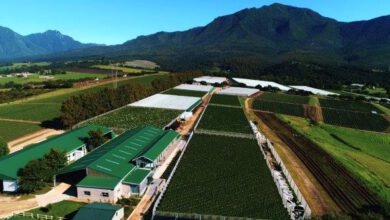Precise & Autonomous Irrigation Control
Tevatronic has developed a solution for increasing farmer’s profitability

the world population grows, increasing demand for food. decline in agricultural lands availability and water shortage will be the most critical challenges the world will have to address in near future.
it is well known fact, that proper irrigation is the major factor affecting yield, and produce quality.
farmers that wish to keep up with trend and fit to more sustainable production process will have to embrace leading irrigation control technology.
the new trend of autonomous irrigation is the future of the precise farming and the best way to save on input resources while increasing yield.
since one of the main day to day tasks of every farmer is to decide when and how much to irrigate, tevatronic has developed an irrigation controller for precision irrigation that responds in real-time to the actual needs of the plants while taking into account farmers’ experience, but without erroneous intervention. the main two problems it resolves are over or under irrigation, both causing loss of yield and income.
from the company start in 2012, tevatronic founders aim was to develop an innovative solution, avoiding the shortages of existing dss (decision support systems) in the market. the available dss systems for farmers use are based either on environment, soil or plant monitoring, overwhelming the user with data and leaving him to take decisions how much to irrigate.
these systems sometime initiate irrigation, based on some type of monitoring, but none of them can give a clue how much water to apply in order to satisfy plant demand without preventing percolation.
tevatronic arrived at the conclusion that autonomous irrigation is the ultimate solution to avoid erroneous decisions by the farmer. the autonomous irrigation developed relies oh the plant to initiate the irrigation when it dries the soil occupied by a dense root system near a dripper and turn it off by wetting any desired depth based of a mathematical algorithm developed by the company. monitoring and initiation of irrigation is based on soil water tension by wireless digital tensiometers re-designed by the company. data is sent to the autonomous decision making module on a server that control the irrigation valve. irrigation is executed in real time and can be monitored at any time.
.jpg) |
.jpg) |
water tension was chosen for monitoring and control of autonomous irrigation for several reasons: movement of water through the soil-plant-atmosphere continuum is governed by tension difference. measurement of tension by tensiometers is accurate, independent of salinity and readily automated. finally, water tension is the parameter that controls plant growth, yield, and produce quality.
it took tevatronic 3 years, several versions and pilots in variety of regions and crops to develop a robust, wireless and fully autonomous irrigation control solution. agricultural researchers, software and hardware engineers, and mathematicians were involved in developing state of the art sensing and irrigation control modules. one of the benefits of the system is the fact that it is wireless, internet based and it includes a proprietary mathematical algorithm allowing depth irrigation control. the system developed is universal, fit for all plants and soil type and does not need calibration. the successful autonomous precise irrigation system developed was achieved by integrating hardware, software and method of operation.
.jpg) |
the installation process is relatively simple and requires no specific expertise. the control of the system is done through the internet web browser and an application. data is collected continuously, stored, analyzed to close the irrigation valve, plotted and available for inspection anytime from anywhere.
in many cases tevatronic system reduces water and fertilizer consumption in an average of about 30% while in some cases the saving reached was 75% while maintaining maximum potential yield or even increasing it.
the system is already commercial and is been sold to customers in israel, usa, sri lanka, thailand, australia and india.




